
Well, this is what La Cieca gathers from Katharina Wagner‘s production of Die Meistersinger (without, of course, having had the benefit of actually seeing it!)
KW’s basic idea is that Great-grandfather Richard presented an overly optimistic view of the dramatic action of the opera. Walther is taught by Hans Sachs to moderate his radical musical ideas by adopting traditional forms; that way his music can be understood by his audience. KW sees this compromise as a sellout, so she depicts the climactic singing contest satirically, as an “American Idol” hypefest.
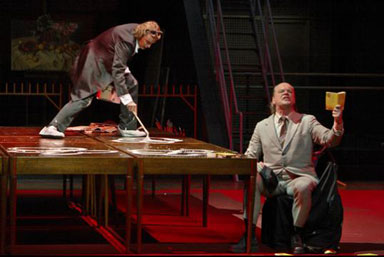
Walther basically grows out of his rebellious phase (e.g., splashing white paint all over the church in Act 1) and becomes just another bourgeois mastersinger. Sachs is played as an aging hippie type who also cleans up his act for the sake of popularity and respectability.
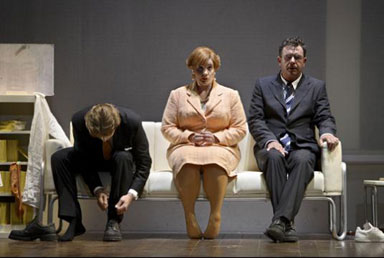
Meanwhile, Beckmesser the pedantic marker is transformed radically by the experience of the Act 2 riot. Depending on your point of view, he is either driven mad or else he has a profound spiritual awakening. The text of Walther’s song that he filches for the competion is on a ripped-up sheet of paper, so his performance at the contest is nonsensical and the crowds laughs at him. And yet to him the song is the purest, most genuine music he has ever created — but nobody else will ever be able to appreciate it. In a way he has become the radical artist that Walther aspired to be.
[La Cieca’s earlier remark about Beckmesser appearing nude in Act 3 was mistaken; she apologizes.]
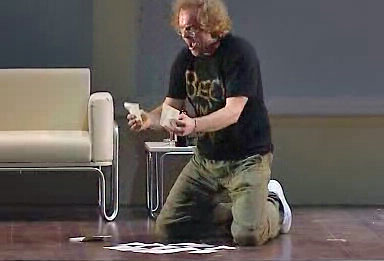
Now, it is safe to say that this is probably not the meaning Wagner had in mind when he wrote Meistersinger, and it is even a reasonable bet that this meaning is at best extremely difficult to convey through this particular text and music. Now, La Cieca doesn’t know much about these things, but as she understand its, part of the current Regie philosophy is that a canonical work like Meistersinger is so utterly familiar to the audience that there is no point in performing it “straight,” that you have to try to find something new to say through the work. Whether you believe in this philosophy or not (your doyenne is on the fence), you can perhaps agree that it is meant to be a serious way of approaching the work, not a frivolous one.















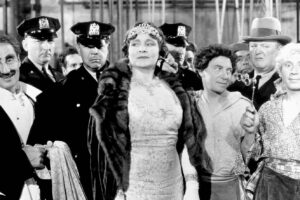
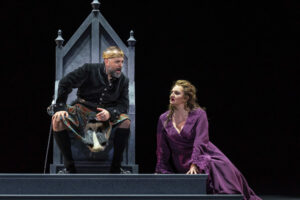
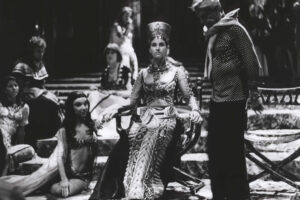






Comments